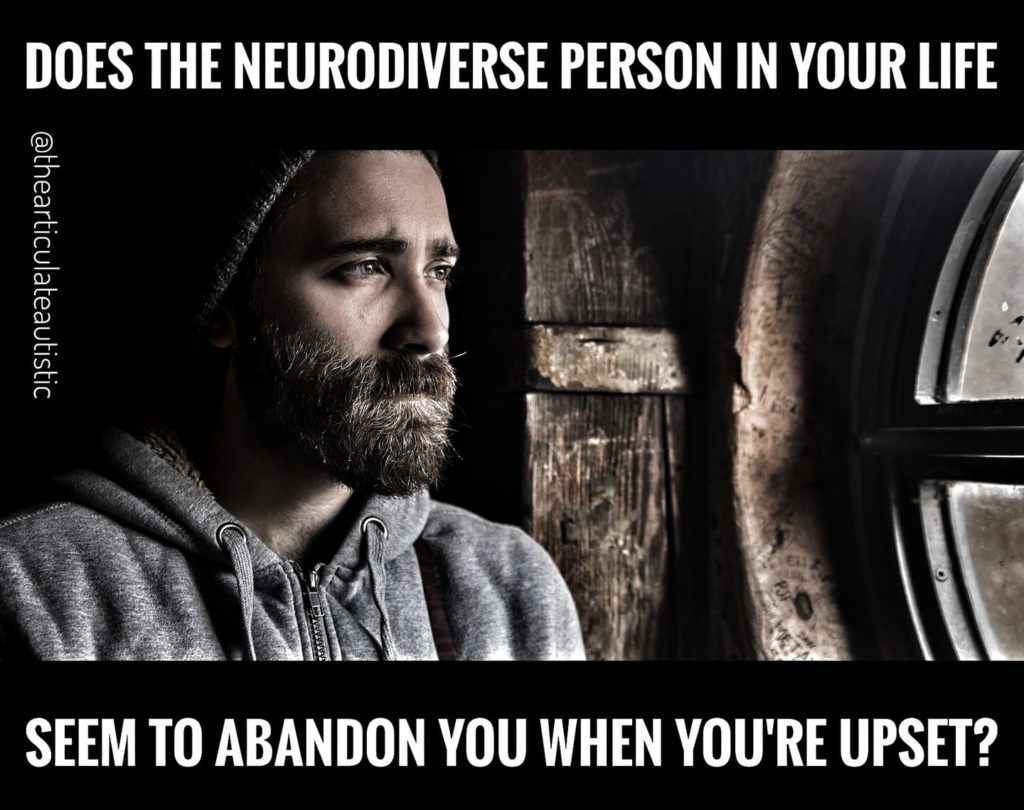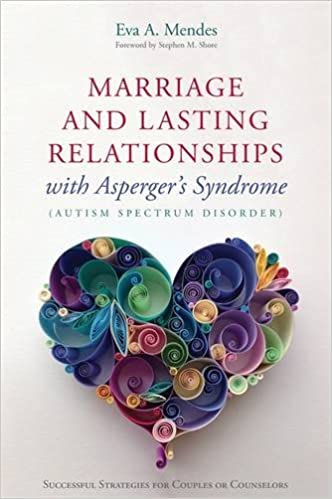Does the Neurodiverse Person In Your Life Seem to Abandon You When You’re Upset?

Why do many autistic people walk away from neurotypical people when the neurotypical person gets upset during an argument or disagreement?
Because that’s what we would want from you.
See, for us, giving you space is our way of one, removing the “problem” (us), and two, letting you process difficult and overwhelming emotions in peace.
Until somebody outright told me that walking away is the EXACT opposite of what most neurotypical people want when they become visibly upset (crying, shaking, screaming), I didn’t know.
I would first try to rationalize, then, it would inevitably get worse, then I would take their words 100% literally (if they told me I was causing them pain and said as much), and leave them alone.
(Article continues below.)
The best way to improve communication with your autistic loved one is to understand how your autistic loved one’s mind works! Intentions, motivations, and personal expressions (facial expressions or lack thereof, body language, etc.), are often quite different in autistic people than they are in neurotypical people.
Experience a better understanding of your autistic loved one by reading books about life from an autistic perspective as well as stories that feature autistic characters. You’ll have so many “Ah ha!” moments and start seeing your autistic loved one in a different light (and you’ll have a better understanding of their behaviors, which you may have been misinterpreting up until now).
Books I recommend for a better understanding of your autistic loved one:
1) I had no idea half the time what it was that I had said, done, or not done that upset them, so I knew I couldn’t make it better.
2) When I’m having a meltdown, and I can longer control my emotions, I want to be in total seclusion because I don’t want anyone seeing or experiencing me like that. It’s agonizingly private, and not something I want to put someone else through if I can help it.
I do realize now why I was looked at as cold and cruel when I’m actually a very warm and loving person, but there’s nothing I can do about that now except help you.
However, I WILL try to comfort others (even total strangers) if they are upset by something OTHER than me, even if I don’t fully understand why.
But, when someone is upset with me, I need to fully and completely understand what it is that was offensive to the other person before I can comfort them because I’m just too confused to go on when they have what I believe to be “a sudden and unreasonable reaction” to me. It triggers my fight or flight, and my brain no longer works in a reasonable way. I’m just in shock, and the only thing I’m capable of doing is trying to protect myself.
If you’re experiencing this with your autistic loved one, this could be what’s going on. They are not abandoning you at your worst time, they are just terribly confused and triggered.
Follow me on Instagram.
Want downloadable, PDF-format copies of these blog posts to print and use with your loved ones or small class? Click here to become a Patreon supporter!







1 Response
[…] you alone. (If we see you’re upset and we think or know we are the cause, we may make ourselves scarce so as to take away the source of your upset. We may not understand what we’ve done, but we sense your distress and it distresses […]